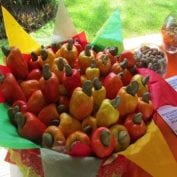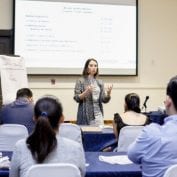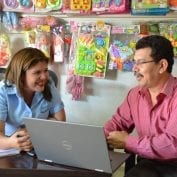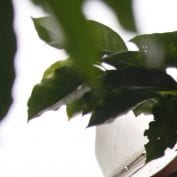In Nicaragua, Farmers are Working to Make Cattle Ranching Sustainable
Through the ResCA program, cattle ranchers in Nicaragua are learning techniques to improve resilience to climate threats.
Through the ResCA program, cattle ranchers in Nicaragua are learning techniques to improve resilience to climate threats.
In the next part of our consumer spotlight series, we are highlighting the unique profile of Guatemalan coffee.
In the third part of our coffee consumer spotlight series, we are highlighting the unique profile of coffee from Honduras. Through the MAS program, TechnoServe is working to improve the competitiveness of Honduran coffee farmers by offering targeted training and support in all aspects of the coffee value chain.
In celebration of International Youth Day, we are sharing stories from a few of the many young people who have graduated from TechnoServe's programs around the world.
TechnoServe’s projects yield a wealth of lessons that can help us – and others – improve our work. In this series, we reflect on the lessons we have learned from our programs in Africa, India, and Latin America, sharing insights from program staff.

The four-year Desarrollo Económico Inclusivo Territorial program, or Territorial Inclusive Economic Development in English, aims to reach 10,000 families living in the basins of the Choluteca, Goascorán, and Nacaome rivers.

Crece tu Empresa (CRECE) is an ongoing program since 2015 in Central America with the support of the Citi Foundation. The objective of the program is to support young entrepreneurs to promote the sustainable growth of their businesses, by helping them develop their skills and business competencies.

ITE 2.0 will assist 825 businesses in Guatemala, Honduras, and Nicaragua. The three year program is expected to increase sales by more than 30%, equivalent to $41 million, and create more than 800 new jobs in different economic sectors.

The expansion of the Sustainable Agricultural Improvement project (Mejoramiento Agrícola Sostenible, or MAS, in Spanish) targets small and medium-scale coffee and bean farmers in the central region of Honduras.
In part one of our weeklong series, we highlight the ways that training and market connections have created lasting income improvements for small coffee farmers around the world.